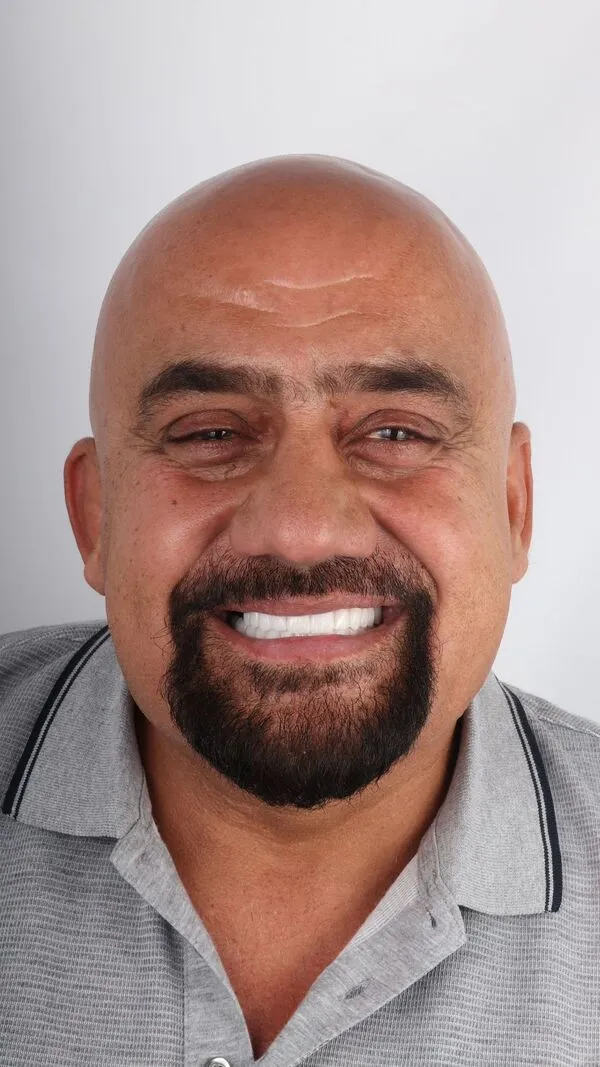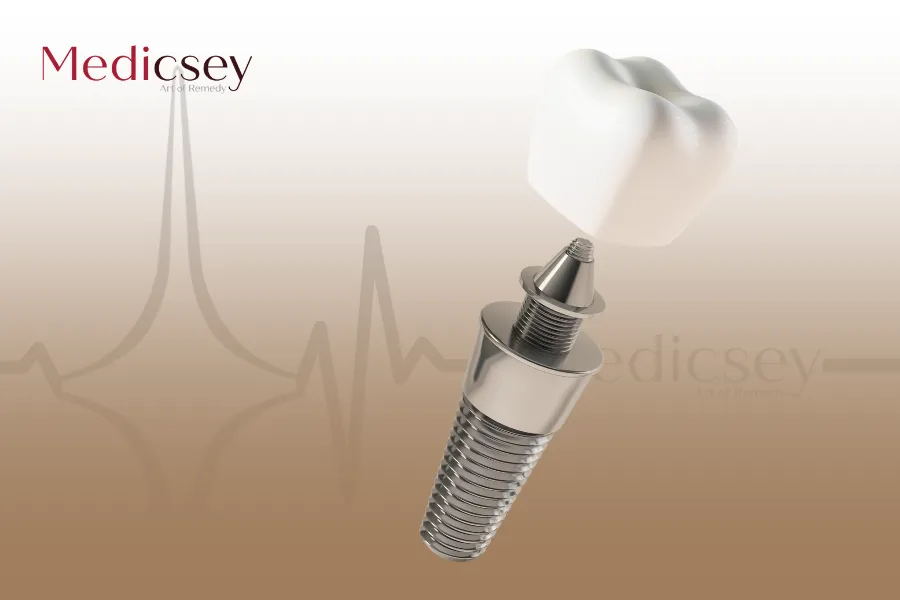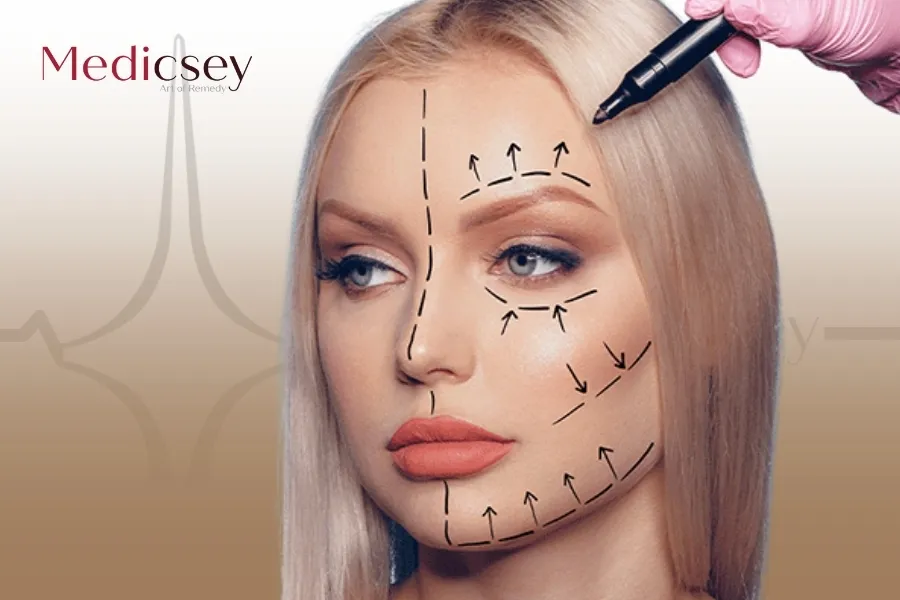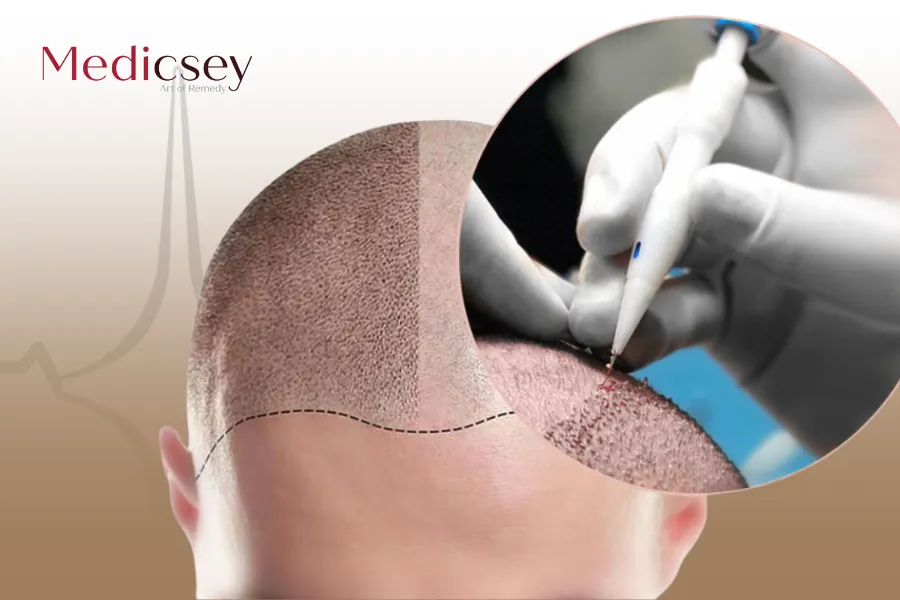Hearing “You have a beautiful smile!” is always a joy but a truly beautiful smile isn’t complete without clean, well-aligned teeth.
For decades, Syria has been a leading destination for dental treatments thanks to its high quality and affordable prices. In this article, we provide comprehensive information about dental implants in Syria, including the types, procedures, and costs involved.
If you’ve lost one or more teeth and are seeking a permanent solution, Medicsey Dental Clinic in Syria offers an unforgettable experience in world-class dental care.
What Are Dental Implants in Syria?
Dental implants in Syria are a surgical procedure in which an artificial titanium root is implanted into the jawbone to replace a missing tooth. After a healing period, a custom-made porcelain crown is fixed onto the implant. The crown is highly durable and mimics the appearance and function of a natural tooth with 100% similarity.
Types of Dental Implants in Syria
There are two main types of implant procedures used in Syria:
- Conventional Dental Implants: These require a longer healing period after the implant is placed. This option is ideal for residents or patients who can stay in Syria for an extended period
- Immediate Dental Implants: Designed for patients with limited time, this approach allows for placing the implant and, in some cases, even the crown during the same visit or within a few days.
Implants vs. Bridges: Which Is Better?
Dental implants are generally the superior choice. Unlike bridges or removable dentures, implants help preserve jawbone health and prevent bone loss. They are a long-term investment that can last a lifetime.
Following a detailed medical evaluation, your dentist will determine the number of implants you need to fully restore your smile. At Medicsey Clinic, our specialists will present the best options tailored to your needs and budget.
Steps of the Dental Implant Procedure in Syria: Ending Tooth Loss for Good
The dental implant procedure in Syria involves several steps, starting from local anesthesia and ending with crown placement:
- Local anesthesia
- Bone preparation
- Implant placement
- Crown fitting
The process begins with numbing the gums using local anesthesia. The gum is gently opened to access the jawbone, where the titanium implant is placed with high precision. The site is then sutured and left to heal for osseointegration (bone-implant fusion), which may vary depending on the patient’s bone quality and density.
Once healed, a crown color-matched with your natural teeth is attached to the implant.
All procedures at Medicsey Dental Clinic are performed using the latest dental technology and digital labs. You can contact us directly on WhatsApp for a free consultation with our medical advisor.
Upper vs. Lower Jaw Implants: What’s the Difference?
Yes, dental implants in the upper jaw can be more complex due to the anatomical structure of this area. Special considerations include:
- Proximity to Sinuses:
The bone in the upper jaw is often less dense, and its closeness to the maxillary sinuses may limit implant placement space - Sinus Lift Procedure:
In some cases, a sinus lift may be required to create enough space for safe and secure implant placement - Bone Grafting:
If the bone is insufficient, natural or synthetic bone grafts can be used to reinforce the area and ensure implant stability.
Upper jaw implant procedures require precise evaluation and advanced expertise, which Medicsey Clinic in Syria provides using CT imaging and digital surgical planning.
How Much Do Dental Implants Cost in Syria?
Syria has become one of the most sought-after destinations for affordable dental treatments in the Arab region and is gaining international recognition as well.
We invite you to experience top-tier dental implant services at competitive prices, performed by specialized professionals in a safe and caring environment.
|
Cost per tooth |
$200 |
|
Complete jaw implant |
$2,400 |
What’s Included in the Cost of Dental Implants in Syria?
The implant cost in Syria typically includes the initial consultation, dental X-rays, and the implant fixture itself. However, comprehensive treatment packages may vary. We encourage you to contact us directly to arrange full services including accommodation and transportation within Syria.
Tip: Eat slowly and be patient during this recovery phase—healing takes time.
Post-Operative Guidelines: What to Avoid After Dental Implant Surgery in Syria
To ensure successful healing and long-term stability of your dental implant, follow these essential post-op instructions:
- Avoid hard or crunchy foods during the first week.
- Do not smoke—it delays bone healing and significantly increases the risk of implant failure.
- Maintain excellent oral hygiene using a soft-bristled toothbrush and antibacterial mouthwash.
- Attend all follow-up appointments as scheduled by your dental specialist.
Why Choose Medicsey Dental Clinic in Syria for Dental Implants?
Choosing the right clinic is half the success. Here’s why local and international patients recommend Medicsey for dental implants in Syria:
- Multiple Branches Across Syria
Strategically located in key cities for easy accessibility. - Specialized Dental Team
A group of expert dentists specialized in advanced dental implantology and full-spectrum dental care. - Advanced Dental Technology
Utilizing 3D digital imaging, guided implant placement, and state-of-the-art equipment for maximum precision. - Integrated Medical Tourism Packages
Comprehensive packages that include accommodation, transportation, and interpretation services.
Frequently Asked Questions
📌 Do dental implants last a lifetime?
Yes—if maintained properly through good oral hygiene and regular dental checkups, dental implants can last a lifetime.
📌 Why are dental implants more affordable in Syria?
Due to the lower cost of living and wages compared to Western countries, along with government support for medical tourism, Syria offers high-quality dental care at significantly lower prices.
📌 How long does it take for the gums to heal after implant surgery?
Gum healing typically takes 7 to 10 days, while osseointegration (bone fusion with the implant) may take 3 to 6 months, depending on individual healing capacity.
Take the first step toward a confident, healthy smile. Our medical consultants are ready to guide you through the process on WhatsApp or via direct call.
Read more: Hair Transplant in Syria









.webp)


.webp)


